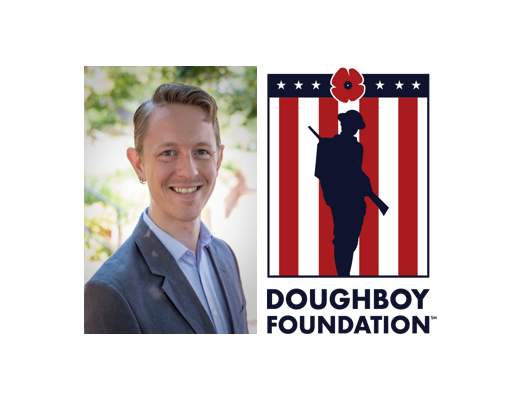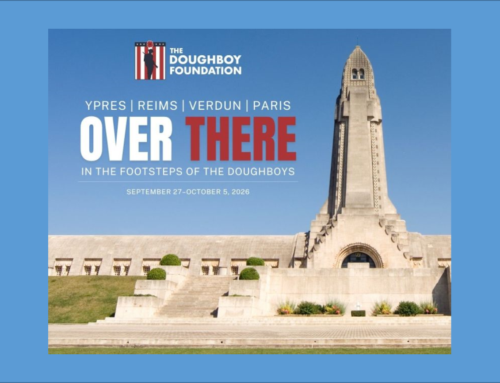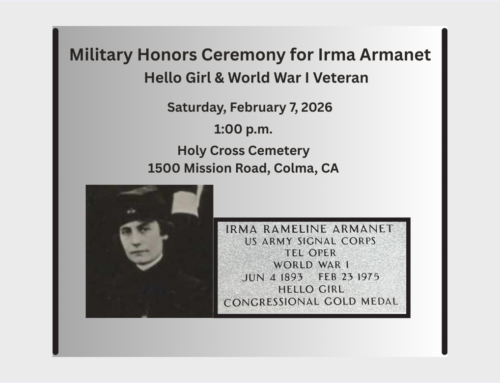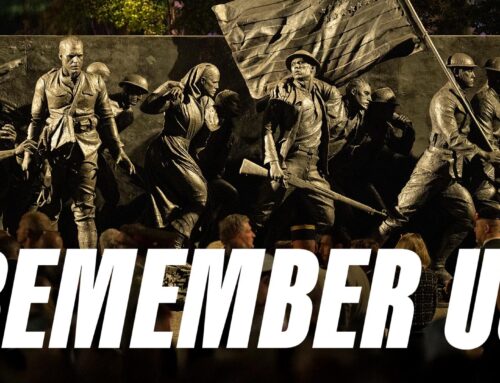Doughboy Foundation welcomes its first official Director of Development
Published: 27 March 2025
By Doughboy Foundation Staff

Morgan Ewing with DBF logo 4
Morgan Ewing is the first official Director of Development for the Doughboy Foundation.
This month the Doughboy Foundation welcomed its first official Director of Development, Morgan Ewing!
Morgan has over a decade of experience in development, having worked on political campaigns and with various nonprofit organizations. Most recently, he served as Development Director at the Human Trafficking Legal Center. A native of Minnesota, Morgan has lived in Washington, D.C., since 2015. While he is not a bugler like many members of the Doughboy Foundation, he does sing Tenor 2 in his chorus. We sat down with him to ask a few questions.
Why did you take the job, and why do you think the Doughboy Foundation is the right place at the right time for you?
I’m thrilled to be joining the Doughboy Foundation at such an exciting moment. Now that the World War I Memorial is complete, we are launching ongoing programs that will honor the Americans who served, commemorate their achievements, and inspire people today to learn about the war and reflect on its impact. In a world that feels increasingly uncertain, with conflicts around the globe threatening to pull more nations and allies into war, it is crucial that we learn from the war that changed the world. The Doughboy Foundation is uniquely positioned to help us do that.
How important is the National World War I Memorial in the context of all the Memorials in Washington, D.C.?
I believe the World War I Memorial is extremely important within the context of the other memorials in D.C. First and foremost, it demonstrates the dedication and determination of America to honor those who have served our country. Whether you served this year or a hundred years from now, our veterans deserve to be remembered, celebrated, and thanked for their service. Additionally, the World War I Memorial is the first 21st-century memorial, a model for how technology can deepen our understanding of history and bring the memorial to the entire country. Even if you’re not in D.C., you can visit the Memorial online, listen to Daily Taps, and take a moment to reflect.
Why you think the DBF is headed for bigger and better things?
The Doughboy Foundation is at the beginning of an exciting new chapter. The Memorial is just the starting point—honoring those who have served isn’t a “one-and-done” effort. The team at the Doughboy Foundation has an incredible platform to bring this important period of history to life for people. Whether they’re visiting the memorial in person or connecting with us virtually, we’ll be offering fantastic programming—music, stories, shows—that will ensure the stories of every American who served are remembered.
What big ideas do you have that can be disclosed now?
Looking ahead, our primary goal is to work with our amazing team to connect everyone to our programs. The Memorial was made possible by the generous support of thousands of people, and I’m excited to show them not only the completed project, but also the many ways we are keeping faith with the American Doughboy. There is so much of World War I that isn’t covered in textbooks, so much that we risk losing. I am excited to tell the stories of those who served and ensure their legacy endures.



